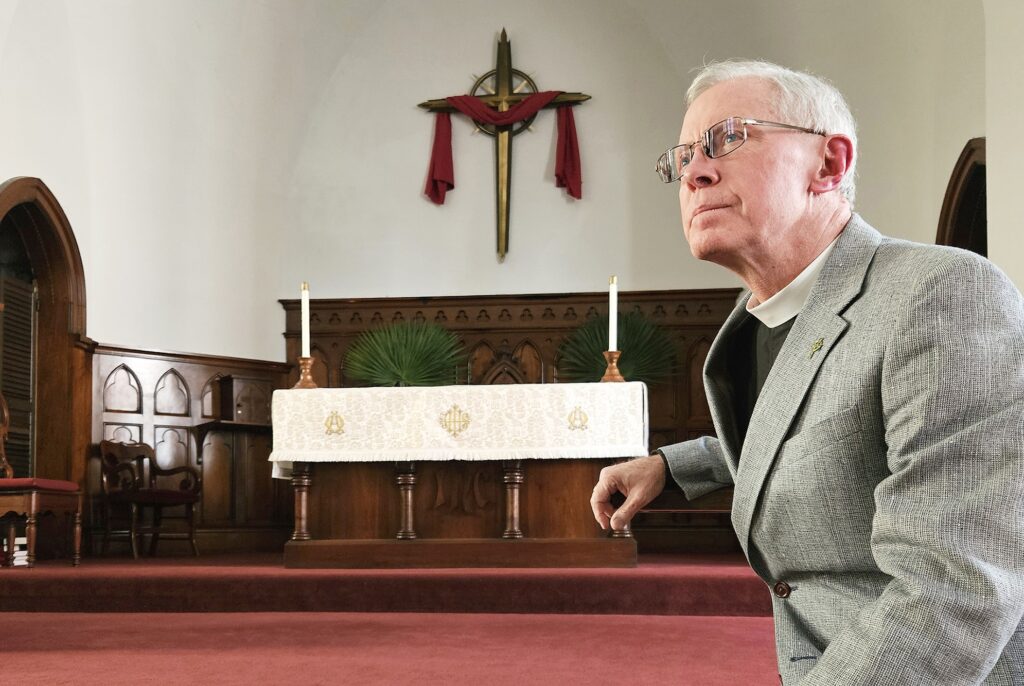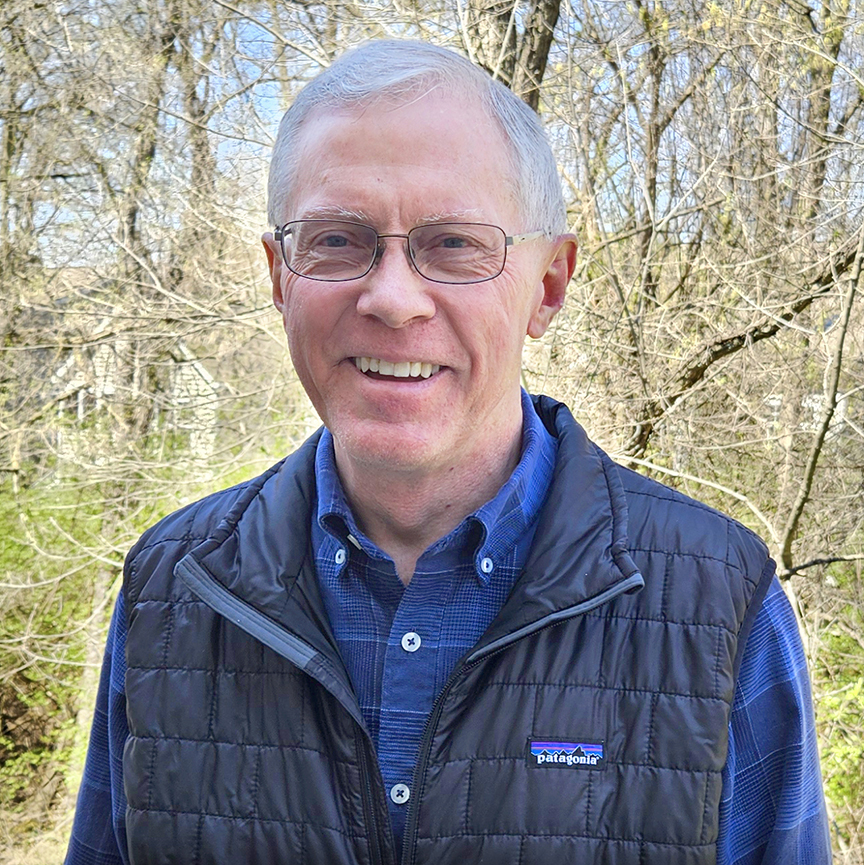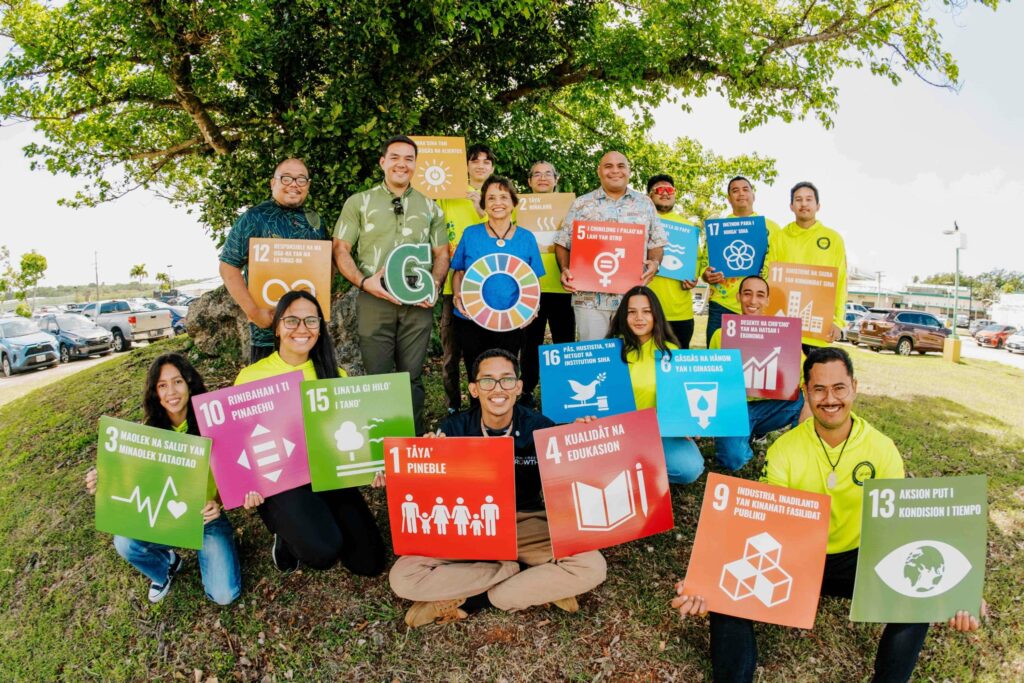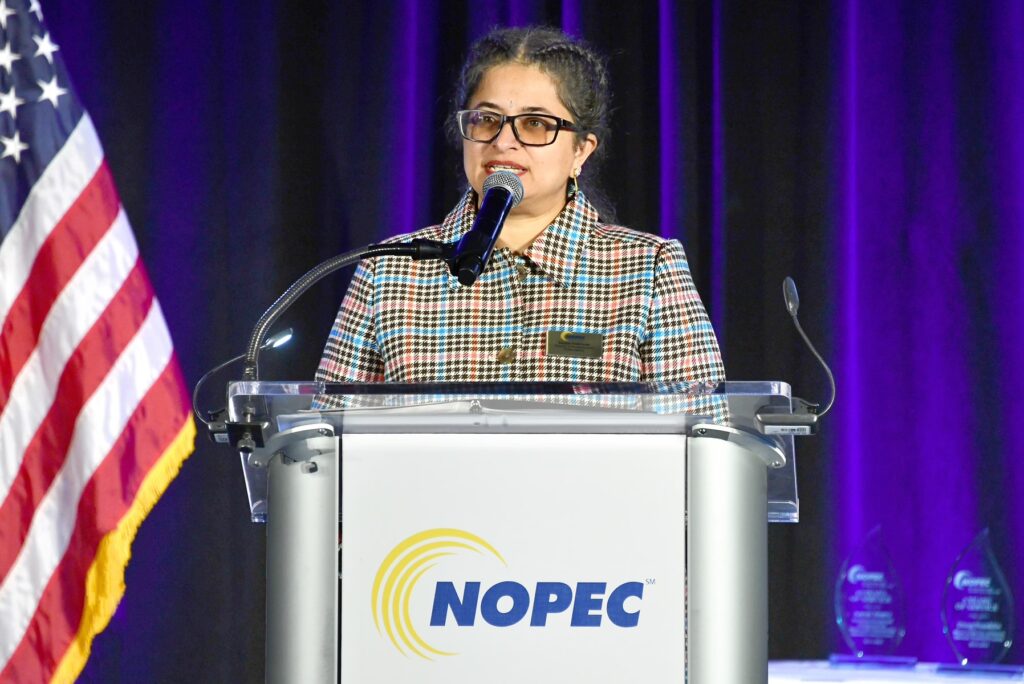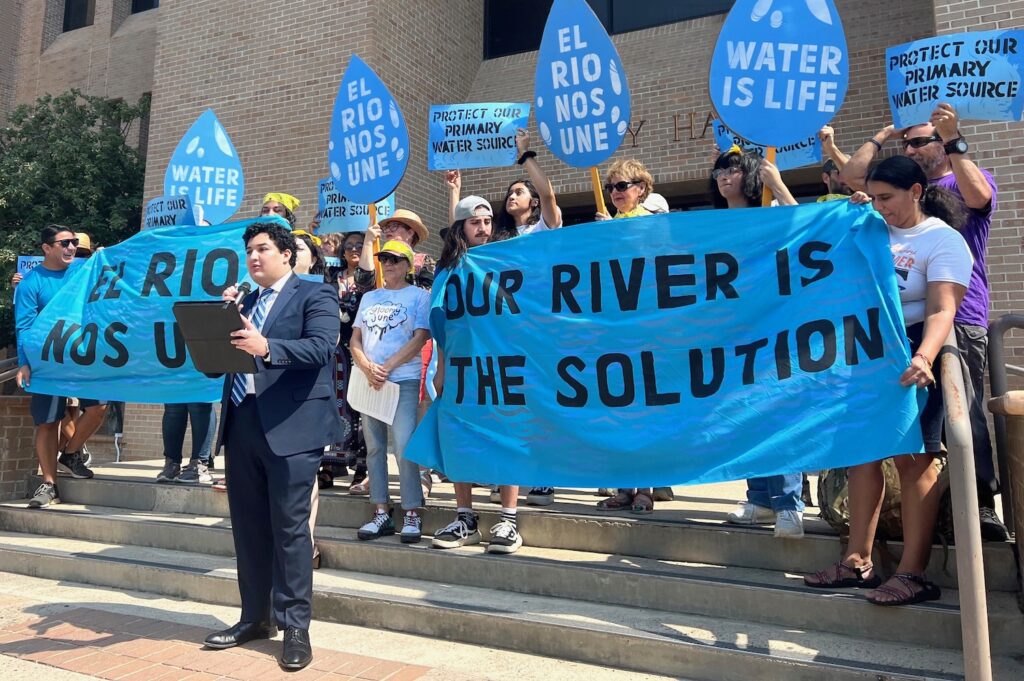David Kendall-Sperry feels blessed to have discovered what he was made to do. But his path to becoming the Rector at St. Peter’s Episcopal Church in Delaware, Ohio – a city of around 45,000 people about 30 miles outside of the state capital, Columbus – was not always clear. Almost 20 years ago, he walked away from a three-decade-long career in IT to enter the Seminary.
Since being ordained in the Episcopal Church in 2007, the Reverend has served in churches across central Ohio. Along with extensive travel in his IT roles, the Reverend brought years of experience participating in service projects and serving as a chaperone on trips abroad with his wife’s Spanish students. “It broadened our understanding of the different kinds of experiences in life that you can run into,” he says, adding that watching young people expand their understanding of the world was particularly gratifying. This commitment to global connection permeates the Reverend’s weekly services, which have been livestreamed since the COVID-19 pandemic, enabling viewers from Kenya and elsewhere to join his congregation in Ohio.
As one of six advisors on the Central Ohio Diocese Bishop’s Council of Advice and the chair of the Sustainable Development Goals Grant Committee (formerly the Millennium Development Goals grant), Reverend Kendall-Sperry relies on the framework’s depth and draws upon the legitimacy of its UN roots to organize and assess small grants. Parishioners often apply for grants that align with global ministry work, like building a library in Madagascar, and the SDGs are used to evaluate proposals and outcomes.
In his view, the SDGs are aligned with “what our Christian faith calls us to do to support those in need.” As the Reverend explains, the Goals can help answer that call by addressing peoples’ needs — from a coat to stay warm in the cold to food, shelter, and access to education. He encourages local parishioners to contribute to the Goals, regardless of their age and abilities, whether through prayer, book drives, fundraising, or direct travel and services. The Episcopal Diocese of Southern Ohio allocates $20,000, or 0.7% of its annual operating budget, to the international SDG grants and applicants must have additional funding in place for travel and other expenses.
That people are at risk of being left behind is also a concern in the Church’s local community. In Delaware County, residents can gather downtown on the first Friday night of the month between May and October to engage with businesses, churches, and other community members. But despite this camaraderie and the county’s status as one of the most affluent counties in the state, one in five children don’t have regular access to three meals a day (SDG 2: Zero Hunger). And with rapid population growth, residents are grappling with a shortage of affordable housing (SDG 11: Sustainable Cities and Communities) and increasing demands on the county’s resources and services (SDG 10: Reduced Inequalities).
“The SDGs,” the Reverend says, “are something to aspire to in our backyards, not just in faraway places.”
— Caroline Kleinfox, United Nations Foundation

